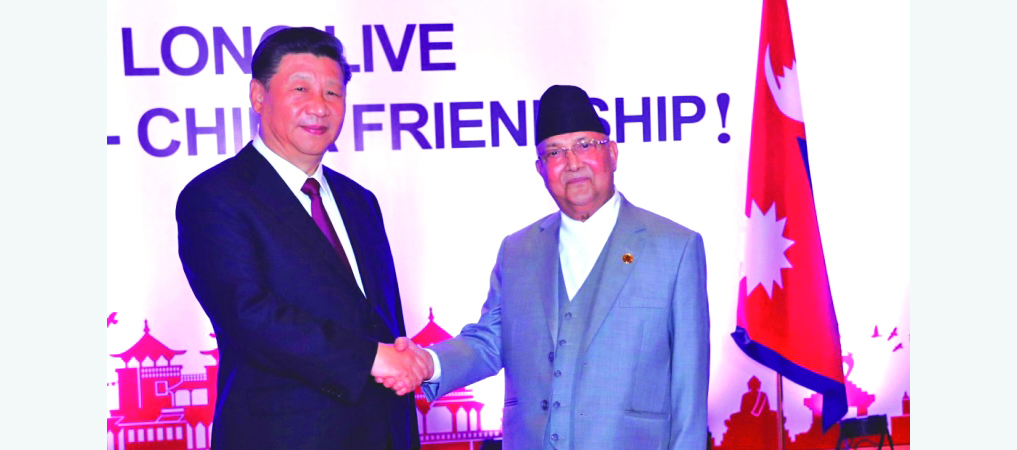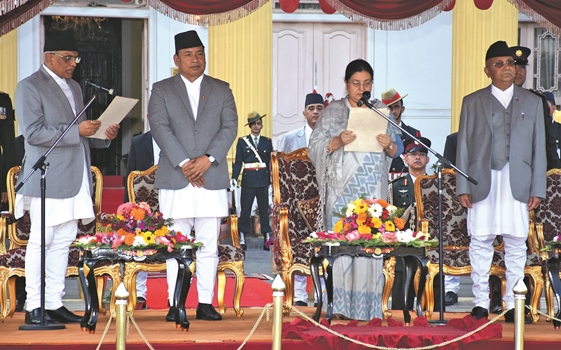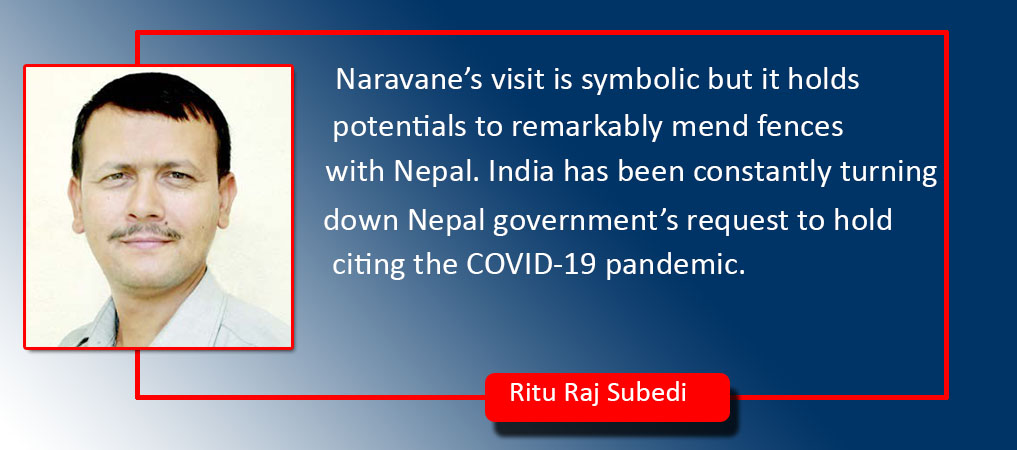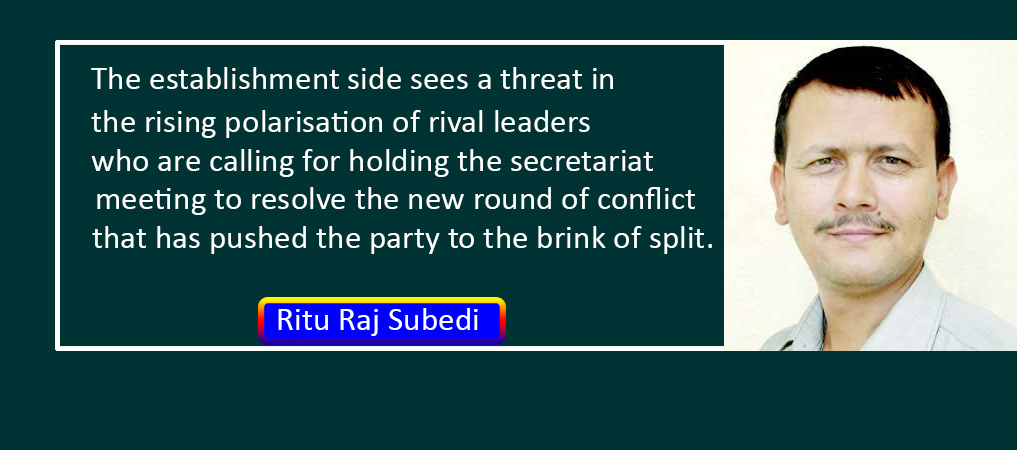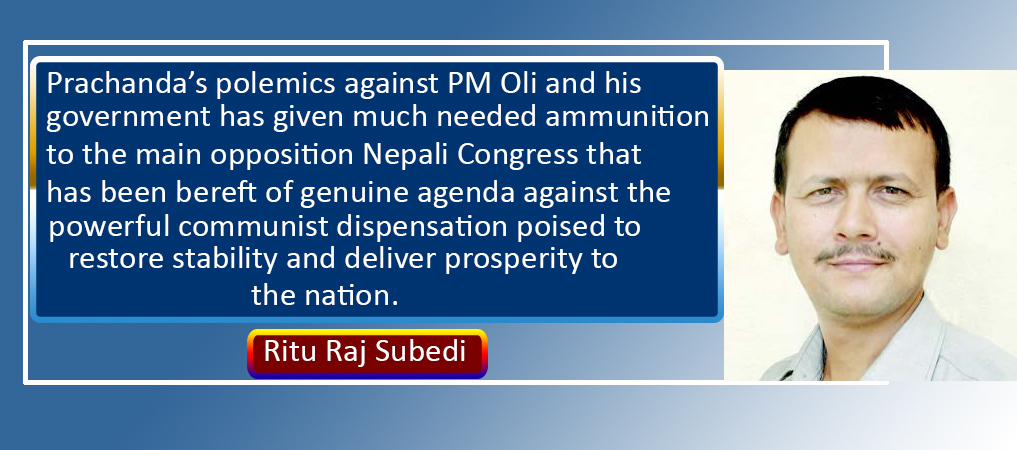Strategic Autonomy In Foreign Policy
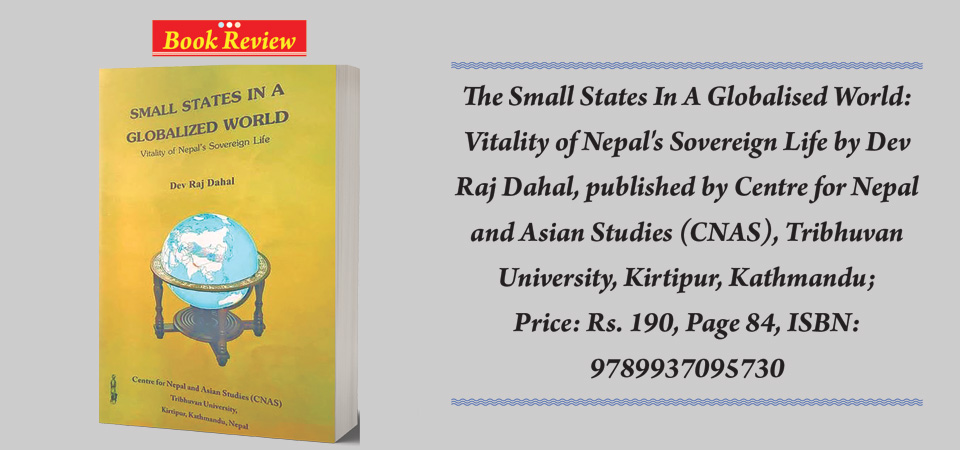
Globalisation and geopolitics are two separate phenomena but they have combined to complicate the domestic politics and foreign relations of small states. Globalisation has accelerated the movements of capital, technology, goods, people, values and cultures across the globe. This sort of transformative change was never seen before in the history of mankind. It has offered both opportunities and challenges to the nations. For small nations like Nepal, globalisation has enabled them to benefit from the foreign labour market, brain gain, exchange of ideas, capital and technology, and universalise their legitimate concerns through proactive diplomacy.
At the same time, it has led to the accumulation of financial powers in the hands of multinational companies and policymaking rights in the hands of supra-national institutions, which sway the sovereignty and right to self-determination of the nations. Those with effective soft and hard powers can minimise their negative offshoots but those devoid of necessary means and resources are likely to be lost in the swamp of faceless forces of globalisation. This is one reason why small nations fear being a loser to powerful players dead-set to maximise the unlimited financial profits from over the 'real economy, nature, human and small states' life'.
Located in the geopolitical heartland of Asia, Nepal now faces the repercussions of both fierce globalisation and tricky geopolitical gambit played by ambitious neighbours and big powers from far-off places. It also risks enduring the ricochet of the so-called Thucydides Trap involving global powers. However, as a civilisational state, it has demonstrated diplomatic skills, military strength and indomitable spirit as seen in its dealings with the British East India Company and Imperial China in the past. The Himalayan nation has shown its vitality and resilience in the pursuit of national survival, security, identity and development for centuries.
This positive image of the nation has been well defended and conveyed in a new book 'The Small States in a Globalised World: Vitality of Nepal's Sovereign Life' by noted political scientist Dev Raj Dahal. The book reflects Dahal's deep intellectual insight, a trove of information, knowledge and competency to objectively analyse emerging trends of geopolitics and globalisation facing the country and present constructive ideas to tackle them. It contains ten chapters – Introduction, Game Changer, Shifting Geopolitical Milieu, Adaptation in Neighbourhood, The Reasons of State, Critical Issues, National Construction, Partnership with Nature, Vital Resources and Conclusion. All these chapters are resourceful and scholarly and arouse the readers' appetite to learn more about the nation's enlightenment tradition and foreign policy innovation. The author has sketched a comprehensive picture of contemporary international order and Nepal's past judicious and pragmatic diplomacy that helped it handle the big powers' manoeuvring without losing strategic autonomy.
According to him, globalisation has augmented their power, wealth and outreach and motivated a thrilling economic, military and strategic race to fulfil their global ambitions and alluring geostrategic shift marked by the Asianisation of world politics. "Yet the euphoria of the borderless world sparked by the post-Westphalian spirit of globalisation has failed to withstand several challenges of international proportion: future of artificial intelligence, space races, climate change, economic crisis, pandemic, anti-migration current, the rise of nationalism, fundamentalism and geopolitics, bioterrorism, swelling of poverty, inequality and loss of jobs and a serious setback for the policy of multilateralism," he states.
The big powers' rivalry has often put Nepal in dilemma and insecurity, dividing political parties and populace into ideological lines as seen in the case of the USD500 million Millennium Challenge Corporation (MCC) grant and China's Belt and Road Initiative (BRI). However, author Dahal argues that competition between neighbours as well as big powers provides Nepal with considerable room for manoeuvring and a context in which it can exercise significant autonomy to pursue its foreign policy objectives independently. "The size of the state does not define the scale of wisdom it upholds in creating a just and peaceful order. Small states have greater interest, stake and imperative to keep themselves afloat with their own intrinsic will, and acquired capabilities for evading the Darwinian reflex of world politics."
This proposition appears to be an idealistic approach to Nepal's foreign policy that may overlook the realpolitik marked by hidden interests and the hegemonic ambition of regional and global powers. Nonetheless, the author strikes a realistic tone when he calls for showing prudent diplomatic defiance, rediscovering the country's classic middle path and invoking normative values in a polycentric world to effectively enforce a balancing act, thereby ensuring sovereignty, security and stability in the country. The normative values are derived from the principles of Panchsheel, non-alignment, the UN Charter and international laws, which provide 'a cognitive map for international conduct, legislative oversight to maintain social control and requirement of parliamentary ratification of treaties on matters of strategic significance.'
Nepal's founding father Prithvi Narayan Shah compares Nepal with a yam between two boulders, which call for adopting the policies of 'active defence, economic mercantilism, cultural nationalism and balanced foreign policy. The author criticises the attempts to deconstruct and substitute the geopolitical metaphor of 'yam' with the notions of a 'transit state', 'vibrant bridge', 'link country', 'trans-Himalayan corridor', etc. which Dahal insist can be 'good proxies for material progress but do not care about various geopolitical landscapes of the nation, its flora and fauna, culture, history, norms and religion and are less sensitive to prevent external influence and secure sensitive frontiers.' With this bold assessment of diplomatic jargon, Dahal challenges those experts who prefer imported policies and narratives to native practice and wisdom.
The author rightly noted that 'strategic geography, natural resources, especially hydropower potential, cultural richness and rising youth population,' leverage Nepal's foreign policy as they promote productive and independent economy, social cohesion and good statecraft. But Nepali leaders should stop courting foreign intervention for regime change and formulate a common and partisan-free foreign policy of 'hedging, balancing and bandwagoning.'
The book is a relevant and highly academic one that is steeped in innovative concepts and vision, which can guide politicians, policymakers, experts, media, civil society and business community in understanding the critical foreign policy discourses and the sources of national power, thereby avoiding geopolitical trap and securing the independent path.
Recent News

Do not make expressions casting dout on election: EC
14 Apr, 2022
CM Bhatta says may New Year 2079 BS inspire positive thinking
14 Apr, 2022
Three new cases, 44 recoveries in 24 hours
14 Apr, 2022
689 climbers of 84 teams so far acquire permits for climbing various peaks this spring season
14 Apr, 2022
How the rising cost of living crisis is impacting Nepal
14 Apr, 2022
US military confirms an interstellar meteor collided with Earth
14 Apr, 2022
Valneva Covid vaccine approved for use in UK
14 Apr, 2022
Chair Prachanda highlights need of unity among Maoist, Communist forces
14 Apr, 2022
Ranbir Kapoor and Alia Bhatt: Bollywood toasts star couple on wedding
14 Apr, 2022
President Bhandari confers decorations (Photo Feature)
14 Apr, 2022



